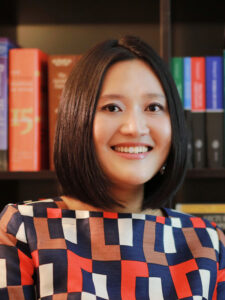
Thinking about Readiness in Trippet 301
 Staying at Trippet Hall on the Wabash College campus always feels like a treat. It was my privilege to go back and stay there for a week earlier this summer as a participant of the early career workshop for theological school faculty. We were the first group that Trippet hosted in three years, yet every corner of the building looked ready to welcome guests again. Amenities in guest suites, white table linens in the dining hall, and snacks and beverages in Clifford Lounge. Everything was in place.
Staying at Trippet Hall on the Wabash College campus always feels like a treat. It was my privilege to go back and stay there for a week earlier this summer as a participant of the early career workshop for theological school faculty. We were the first group that Trippet hosted in three years, yet every corner of the building looked ready to welcome guests again. Amenities in guest suites, white table linens in the dining hall, and snacks and beverages in Clifford Lounge. Everything was in place.
It was Thursday morning. At the very moment when I had just started shampooing my hair, a fire alarm went off. I hoped it would stop after a few beeps, but no, it kept going. “Oh dear, I can’t go out like this,” I thought. I decided to finish the shower as quickly as possible. With the shower faucet turned off, it became clear that all the fire alarms on the entire third floor of Trippet Hall, including my room, were going. My heart was beating fast. I hastily reached my hand to the towel hanging on the bathroom door, thinking, “Is this from the kitchen? What if this is something serious?” Right then, someone banged on my door, “Fire department! Open the door!” My heart was now pounding. “Give me a second!” I shouted. No time to take real, presentable clothes out of the closet. I picked up my pajamas lying on the bed, barely put them on, and snatched my phone and wallet. Ready to evacuate, I finally opened the door, and there was a burly firefighter standing in front of my room. “Just wanted to make sure nothing’s on fire in your room,” he said, with a big smile on his face, even. It was simply an alarm malfunction.
The following day at around the same time, I was shampooing my hair again, and all the fire alarms on my floor went off, again. As soon as I got out of the shower, I rushed myself, recalling what had happened yesterday. Putting on clothes, I thought, “A firefighter will be here soon. I’ll be so ready this time. Lesson learned!” I even felt a bit proud of myself. Ten minutes passed; nobody came. It turned out that they were testing the alarms to fix them.
What does it mean to be “ready” in theological education? Our disciplines have trained us to understand readiness as being about control. To be ready to teach is to be in control—of the material, of the classroom dynamics, of what’s going on in our field. Our readiness in the academy is enfleshed in the authority we build and exhibit through degrees, publications, rank, and service. It is often assessed by the number of checkboxes we check: How many degree programs are you able to teach? How many languages or subjects? How many committees are you willing to join or lead? How many students will you advise?
Often, we let this “control” mode dictate our pedagogy as well. One certain page number on my lecture notes, although I know I will never get to that page in class, seems to prove that I have prepared enough. More details in my syllabus and rubrics, although I know they cannot wholly assess students’ learning and engagement, seem to ensure my grading is fair and informed. We often come to teaching with the assumption that more control means more expertise.
In Trippet 301, I had to pivot to a different kind of readiness to open the room door and let the firefighter know at the right time, there’s no burning object in my room and everything is fine.
What does it mean to be “ready”? At one time, I thought having my framed PhD diploma on the wall would indicate I was ready to teach. Though it conveys that we have completed onerous work, that does not equate readiness. Over time, I have learned that we become more ready as we open ourselves to unlearning what we know and how we were trained. We become more ready as we open ourselves to surprises and challenges and let them form us. We become more ready as we center students’ processes and learning, rather than necessarily their outcomes and proficiency. In the end, our readiness is built upon our intentional and habituated openness. Because the line between teaching and learning is always porous.
Leave a Reply